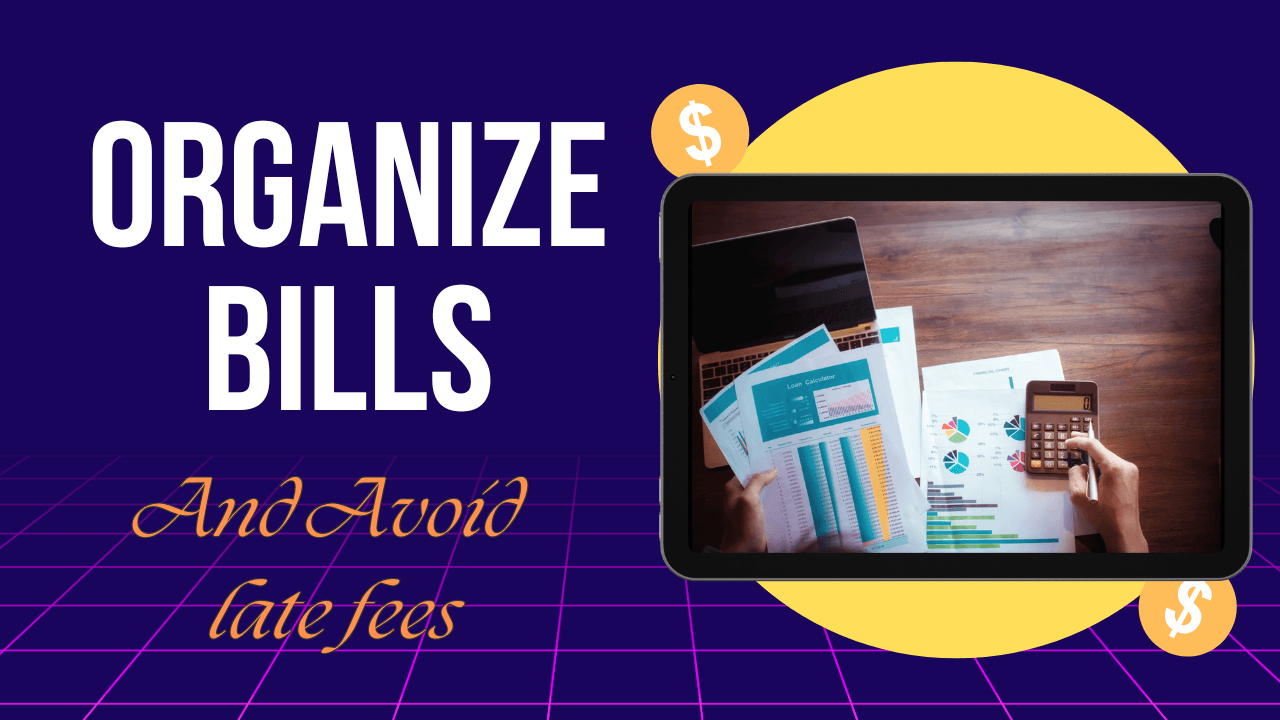How to Organize Your Bills and Never Miss a Due Date Again
Pavleen Kaur
8, October, 2024 2 min read

Managing bills can feel overwhelming—especially with multiple due dates scattered throughout the month. Missing just one bill can lead to late fees, penalties, and even a dip in your credit score 😫.
But with a little organization, you can streamline the process and make sure you never miss a payment again!
Let’s dive into some effective strategies to organize your bills and stay on top of your finances.
Why Organizing Your Bills Is Important 💼🗂️
When your bills are disorganized, it's easy to forget due dates and overlook critical payments. This not only costs you extra money in fees but also causes stress and anxiety. A well-organized bill payment system can:
- Prevent missed payments and late fees 📅
- Improve your credit score 📈
- Reduce stress about finances 😌
- Help you budget more effectively 💰
Let’s explore how you can simplify your bill management and stay ahead of deadlines.
Step 1: Create a Bill Payment Calendar 📅📝
A bill payment calendar is one of the most effective ways to visualize your due dates and keep track of what needs to be paid. You can create this on a paper calendar, in a planner, or use a digital version like Google Calendar.
Here’s how to get started:
- List All Your Bills: Gather all your recurring bills (rent, utilities, phone, etc.).
- Mark the Due Dates: Write down the due dates on your calendar or set reminders on your phone a few days before each payment.
- Set Payment Reminders: Make sure to set reminders for at least two days before the actual due date so that you have time to transfer funds or resolve any issues.
Step 2: Automate Your Payments for Peace of Mind 🔄💳
One of the easiest ways to ensure you never miss a due date is by automating your bill payments. Many service providers and banks offer an automatic bill payment feature where the amount due is automatically deducted from your account on the due date.
Benefits of Automating Payments:
- No need to manually log in and pay each bill.
- Saves time and reduces the risk of forgetting a payment.
- Helps you maintain consistent payments and avoid late fees.
Step 3: Organize Your Bills in One Place 📂📑
Keeping all your bill-related information in one spot can make a huge difference. You can go digital or stay traditional with a paper system.
Digital Methods:
- Personal Finance Apps: Use app like TimelyBills, that track all your bills, due dates, and payments in one place.
- Spreadsheets: Create a simple Excel or Google Sheets document where you can list all your bills, due dates, amounts, and payment status.
Traditional Methods:
- Bill Organizer Folder: Get a folder or binder where you can keep all your paper bills organized by month or category.
- File System: Dedicate a space in your home office or kitchen for organizing bills in a drawer or filing cabinet. Keep it labeled so it’s easy to find.
Step 4: Set a Weekly or Bi-Weekly Bill Check-In ⏰
Regular check-ins can help ensure you’re on top of everything. Set aside time every week or bi-weekly to review your upcoming bills, check if any payments were missed, and make adjustments if needed.
What to Include in Your Check-In:
- Look over your bill payment calendar.
- Confirm all payments have gone through.
- Adjust for any changes in your income or bills (like new subscriptions or unexpected expenses).
Step 5: Review and Cut Down on Unnecessary Bills ✂️🛑
Sometimes, organizing bills also means cutting out the ones you don’t really need. Review your subscriptions, memberships, and recurring expenses. Are you still using that streaming service or gym membership?
Steps to Review Bills:
- List Out Subscriptions: Make a list of all recurring subscriptions.
- Evaluate Usage: If you haven’t used a service in the past 30 days, consider canceling it.
- Negotiate Rates: Call your service providers and try to negotiate a lower rate. Many companies offer discounts for loyal customers.
Step 6: Use a Budgeting System That Works for You 🧾💼
To organize your bills and pay them on time, you need a budget in place. A budgeting system helps ensure you have enough money allocated to cover your bills without overspending.
Popular Budgeting Methods:
- 50/30/20 Rule: Allocate 50% of your income to needs (including bills), 30% to wants, and 20% to savings.
- Zero-Based Budgeting: Assign every dollar of your income to a specific category, ensuring that your income minus expenses equals zero.
Use budgeting apps like TimelyBills to keep track of income, expenses, and bills, so you’re always prepared when the due dates roll in.
Final Thoughts: Simplify Your Life with Organized Bills 🏡💡
By organizing your bills and adopting these strategies, you’ll reduce the stress and anxiety that come with managing finances. Whether it’s automating payments, creating a bill calendar, or reviewing subscriptions, these simple steps will help you stay on track. Now you can focus on what really matters—living your life, without the worry of missed due dates or late fees! 🙌💸
Ready to take control of your bills? 📲 Download the TimelyBills App today and organize your payments like a pro! Never miss a due date again and start saving money 💰.

Download the app and get started on your money saving journey
© Copyrights 2025 TimelyBills. All rights reserved.


